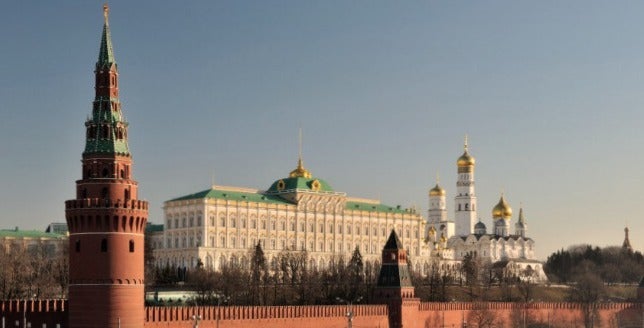Russian Major

The program of studies leading to a Russian major educates students to recognize the complexity inherent in all cultures, including their own. A rigorous curriculum focusing on Russia, Russian, and Russians empowers students to see from the Other’s point of view. The Department of Slavic Languages recognizes four inter-related curricular foci and has identified discrete goals within each of them: communication; culture; academic and professional applications; and de-Othering the Other. Upon completion of the Russian major, students should be able to:
Communication
- Understand extended speech and follow complex lines of argument.
- Read technical, scholarly, and literary prose; appreciate and understand an author’s attitudes or viewpoints; recognize markers of genre and style.
- Interact spontaneously with native speakers on a wide range of subjects and express and sustain a personal viewpoint.
- Write detailed texts relaying information and supporting a particular point of view.
- Access and use the new media in Russian.
Culture
- Understand the place of Russian within the context of world languages.
- Identify major religious, artistic, and social currents that inform Russia’s past and present.
- Recognize major periods and currents in Russia’s cultural and literary development.
- Demonstrate familiarity with the norms of contemporary Russian life (e.g., family interactions; popular entertainment; media, including the internet; etc.).
Academic and Professional Applications
- Apply Russian as a research tool to a particular academic discipline (e.g., literature, linguistics, history, political science, theology, etc.).
- Use Russian in the professional arena (e.g., in working for the U.S. government, an NGO, a private company or firm conducting business with Russia, etc.).
De-othering the Other
- Participate appropriately and meaningfully in a broad range of social interactions with Russians, whether inside or outside of Russia (e.g., cultural and sports events, educational dialogue, religious services, etc.)
- Share their own perspectives on Russia in a manner that is well-informed and respectful.
Required Courses
GU course descriptions & current offerings are no longer available for direct linking. They are only available through the Georgetown Registrar’s Schedule of Classes link: https://bn-reg.uis.georgetown.edu/StudentRegistrationSsb/ssb/courseSearch/courseSearch (select browse catalog)
12 Russian courses (unless lower placement requires additional language study):
- Intensive First-Level Russian II
- Intensive Second-Level Russian I
- Intensive Second-Level Russian II
- Third-Level Russian
- Russia(n) in Context I
- Russia(n) in Context II
- Russia A-Z (part one)
- Russia A-Z (part two)
- 4 Russian electives: 2 taught in English and 2 in Russian
Students who begin at a higher level must take 12 courses (a sequence of 10 six-credit or three-credit courses, plus Russia A-Z/Parts One and Two) in consultation with their advisor and/or the Department Chair.
Students should select their four Russian electives in consultation with their adviser from 300-400 level courses in Russian language, literature, culture, and linguistics, and from coursework completed in approved programs in the Russian Federation.
Transfer students with previous college coursework in Russian will be awarded Russian credit based on performance on the departmental placement examination upon entrance.
See also the Integrated Writing Statement for the Russian major.
